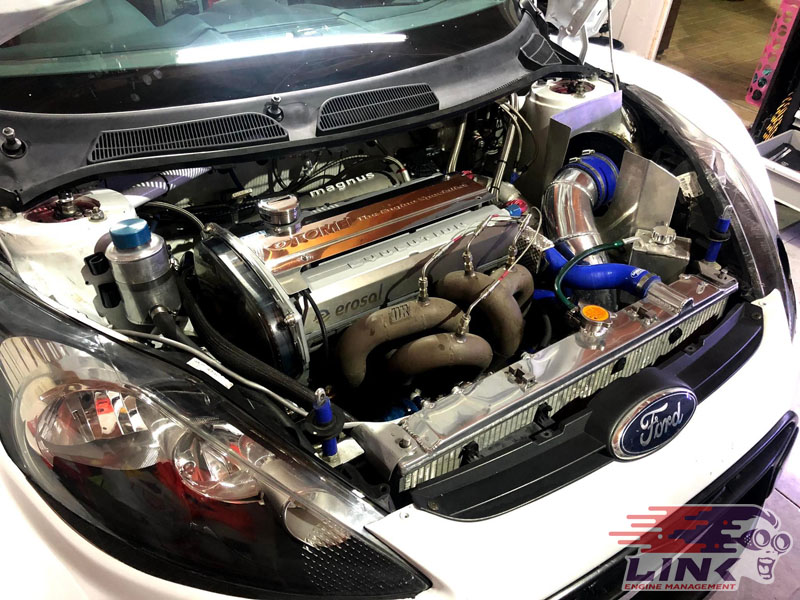Why Choosing the Right Ford Fiesta Engine Parts Matters for Longevity
Wiki Article
Unlocking the Power of Engines: A Comprehensive Overview to Efficiency and Effectiveness
Recognizing the detailed technicians of engines is critical for both efficiency fanatics and daily motorists. The responses might redefine our technique to engine performance and effectiveness in means that are both enlightening and vital.Understanding Engine Essentials
What comprises the basic auto mechanics of an engine? At its core, an engine is a device developed to transform gas into mechanical energy through a series of regulated explosions or combustion processes.The crankshaft after that transforms this linear activity into rotational power, which inevitably powers the automobile. The camshaft regulates the opening and closing of the valves, regulating the consumption of air and fuel and the expulsion of exhaust gases. In addition, the engine counts on a very carefully calibrated fuel-air combination, ignition system, and cooling system to guarantee optimal efficiency and effectiveness.
Recognizing engine fundamentals additionally includes acknowledging the importance of engine cycles, such as the four-stroke cycle, that includes intake, compression, power, and exhaust strokes. Each phase is crucial in making certain the engine works smoothly and successfully. Proficiency of these essential mechanics lays the foundation for discovering much more intricate engine dynamics and efficiency metrics, vital for maximizing both power output and effectiveness.
Trick Performance Metrics
Secret performance metrics are necessary for evaluating an engine's effectiveness and power result, giving important understandings for both suppliers and consumers. These metrics serve as standards for engine efficiency, enabling notified decisions in design, buying, and manufacturing.One of the primary metrics is horsepower, which quantifies the engine's ability to carry out job over time. Torque, measured in pound-feet, is another essential metric that indicates the engine's rotational force, directly impacting acceleration and pulling capability. Fuel efficiency, usually gauged in miles per gallon (MPG) or liters per 100 kilometers (L/100km), analyzes just how efficiently the engine transforms gas right into movement, affecting ecological considerations and operational costs.
In addition, thermal performance measures how well an engine transforms fuel energy right into beneficial job, disclosing understandings into energy losses largely with heat. Emission degrees, including CO2 and NOx, are likewise crucial, reflecting the engine's environmental effect and compliance with regulatory criteria.

Tuning Strategies for Performance
Tuning strategies play a significant role in boosting engine efficiency by optimizing performance metrics identified in earlier discussions (ford fiesta engine). Various methods exist to tweak an engine, each adding to enhanced fuel economic climate and minimized dischargesOne efficient method is changing the air-fuel ratio, guaranteeing the engine operates within the optimal combustion regime. A leaner blend can boost gas effectiveness, however it should be balanced to stop misfires or engine knock. Furthermore, reprogramming the engine administration system can alter parameters such as ignition timing, which further improves performance while keeping power output.
An additional vital technique entails modifying the intake and exhaust systems. Updating to high-performance air filters and exhaust headers can minimize back pressure, promoting much better air flow. This enables the engine to breathe even more openly, leading to enhanced burning performance.
Furthermore, the application of sophisticated adjusting devices, like dyno testing, gives precise data that makes it possible for targeted adjustments. Frequently keeping track of these performance metrics ensures that adjusting initiatives yield the desired effectiveness outcomes. Jointly, these methods not just bolster engine efficiency but likewise add to long-lasting sustainability in engine operations.
Maintenance for Optimum Efficiency
Regular engine maintenance is crucial for achieving ideal performance and durability. A well-maintained engine not just click here for info runs efficiently yet also minimizes the threat of expensive fixings and malfunctions. Secret elements requiring regular interest consist of oil, filters, belts, and spark plugs.Transforming the engine oil at advised periods is important, as oil lubes relocating parts and avoids overheating. Similarly, changing oil and air filters makes sure that contaminants do not impair engine feature. Disregarding these parts can lead to minimized efficiency and potential engine damages.
Additionally, checking and replacing used belts and hose pipes is essential to stop unexpected failings. Timing belts, specifically, need go to this web-site to be changed according to the supplier's schedule to prevent devastating engine damages.
Flicker connects must additionally be checked and changed as needed, because they play a critical role in ignition and fuel effectiveness.
Future Patterns in Engine Technology
Accepting improvements in modern technology, the future of engine layout is poised to revolutionize performance and efficiency throughout numerous applications. One of the most considerable trends is the change toward electrification. Hybrid and fully electric powertrains are becoming significantly traditional, offering decreased discharges and boosted gas efficiency. This transition is not merely a trend but a need driven by regulative stress and customer need for lasting options.Furthermore, developments in products science are bring about lighter, more powerful parts that enhance engine performance while decreasing power usage. Advanced manufacturing methods, such as 3D printing, enable the development of intricate geometries that improve air movement and thermal management, hence optimizing combustion procedures.
Additionally, the combination of artificial intelligence and artificial intelligence is established to change engine diagnostics and performance tuning. These innovations can analyze large quantities of information in real time, allowing anticipating upkeep and tailored efficiency improvements.
Conclusion
In verdict, opening the power of engines calls for an extensive understanding of their auto mechanics and performance metrics. Executing efficient tuning techniques and sticking to normal upkeep methods considerably enhance engine capabilities.Furthermore, the engine relies on a carefully adjusted fuel-air blend, ignition system, and cooling system to make certain ideal performance and efficiency.
Understanding engine fundamentals also entails acknowledging the significance of engine cycles, such as the four-stroke cycle, which consists of intake, power, compression, and exhaust strokes. Mastery of these essential mechanics lays the foundation for exploring a lot more complex engine dynamics and efficiency metrics, find more info important for maximizing both power output and performance.

Embracing advancements in technology, the future of engine design is poised to revolutionize efficiency and performance across various applications.
Report this wiki page